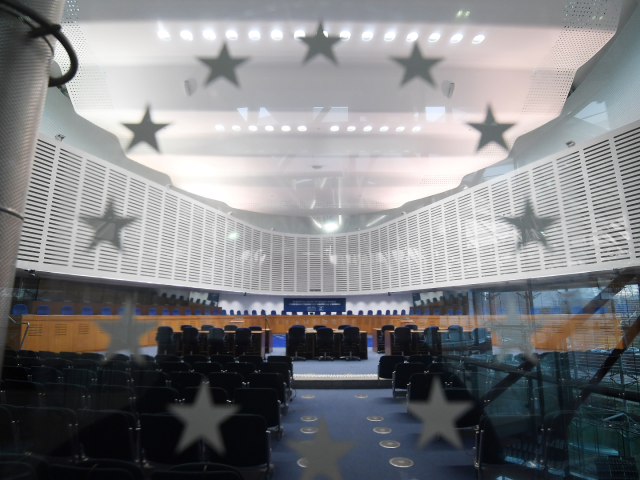The British government will finally be able to overrule European judges on the deportation of illegal migrants under reforms to the UK’s human rights rules to be introduced to the House of Commons on Wednesday.
Following the “scandalous” intervention by the European Court of Human Rights (ECHR) to prevent a deportation flight of illegal aliens to Rwanda earlier this month, Boris Johnson’s government will publish its long-awaited Bill of Rights to the Parliament, which among other issues, will empower ministers to reject rulings from judges in Strasbourg, notably on the deportation of illegal migrants.
Though the UK officially left the European Union in 2020, the country is still a part of the Council of Europe and its subsidiary ECHR, as it is technically a separate institution from the EU, though so closely aligned that they share the same flag, anthem and are located in the same ‘European Quarter’ campus in Strasbourg, France.
Deputy Prime Minister and Justice Secretary Dominic Raab, who will introduce the legislation, said according to The Times: “We will be making it crystal clear that parliament has the last word when it comes to the legislative function and the [London] Supreme Court has the last word when it comes to the judicial function.
“We will be very clear that UK courts will not need to take into account case law from Strasbourg and they are explicitly free to diverge from it.”
The British Bill of Rights will replace the Human Rights Act implemented by the Labour government of Tony Blair in 2000, which enshrined the European Convention on Human Rights, which was drafted in the wake of the Second World War and established the creation of the European Court of Human Rights. Conservative Party governments, stretching back to David Cameron, have long promised to overturn the law, however, like promises to reduce immigraiton, they have so far failed to do so.
The changes to the law, expected to be implemented by the end of the year, will remove the need for British judges to consider case law from the Strasbourg court, which has previously resulted in UK courts considering cases from other European states in their judgements.
It will also seek to reduce the number of deportations blocked by the so-called “right to a family life” under Article 8 of the European Convention on Human Rights. Instead, those eligible for deportation would have to prove that a child or dependent would experience “overwhelming, unavoidable harm” if the deportee was removed from the country.
Meanwhile, record numbers of illegal migrants crossing the English Channel from France in small rubber boats has coincided with the highest number of asylum applications in Britian in the past 20 years, with 60,000 applications filed last year. Despite the rapid surge, the government has only successfully deported 15 failed claimants over the past year.
In response to the 50,000 illegals crossing the Channel since 2018, the government signed an agreement with Rwanda to house aliens while their asylum claims are processed rather than being put up in taxpayer-funded accommodation on British soil. The government hopes that sending illegals to the African nation temporarily will deter further crossings of the English Channel.
Leading Brexit figures, including Nigel Farage, have argued that the policy would not work until the United Kingdom finally “completed” Brexit and removed itself from the jurisdiction of the European Court of Human Rights.
While the addition of being able to override the European court in the Bill of Rights came in the wake of the Rwandan deportation flight being blocked, it remains to be seen how meaningful the change will be in terms of securing deportations, given the British judiciary’s long history of leniency towards foreign national offenders.
Indeed, even prior to the intervention of the ECHR to block the flight to Rwanda, only a handful of illegal migrants were actually approved to be sent to the East African nation by British judges.
Nevertheless, leftist campaigners have decried the move to depower the ECHR, including the chief executive of Amnesty International UK, Sacha Deshmukh, who said per The Guardian: “The [Strasbourg] court’s intervention in the Rwanda deportation last week was an example of it enacting its fundamental role in ensuring basic human rights aren’t violated, stating nothing more than that the UK should pause removals to Rwanda pending the outcome of our own domestic judicial review process.
“It’s very troubling that the UK government is prepared to damage respect for the authority of the European court of human rights because of a single decision that it doesn’t like. This is not about tinkering with rights, it’s about removing them.”
Follow Kurt Zindulka on Twitter here @KurtZindulka

COMMENTS
Please let us know if you're having issues with commenting.